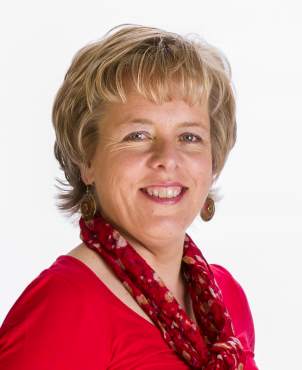By Joan Campbell
On our final quest to discover the Great Christian Fantasy Writers, we creak open the door of the wardrobe and take a peak into C.S. Lewis’ remarkable books. But we also spin forward through the circle of time to where a modern generation of speculative fiction writers are breaking new ground.
Irish-born Lewis—academic, apologist and author—is probably best known for The Chronicles of Narnia series. The first of the seven books (The Lion, the Witch and the Wardrobe) was published in 1950. Whereas Tolkien’s writing hinted at Christian themes, Lewis combined mythical elements with a rather distinctive Christian message. His character Aslan, for instance, is a strong Christ-like figure in the stories.
Criticism from all Camps
Although readers took to his books, many critics didn’t. Some Christian scholars found it offensive that so-called Christian literature included mythical and magical elements. Voices from a completely different camp criticized Lewis’ Christian themes as excessive, believing the books would indoctrinate children.
From Atheism to Evangelism
Lewis admitted to ‘smuggling’ theology into the stories. Over the course of his writing career he was dubbed the ‘literary evangelist’, surprising for one who had been a staunch atheist for many years. Having lost his mother at an early age, Lewis rebelled against his early Christian upbringing and embraced atheism in his teen years. Only in his thirties , and under the influence of his friend, J.R.R. Tolkien, did he find faith in Christ. He writes that he came to Christianity “kicking, struggling, resentful and darting my eyes in every direction for a chance to escape.”
Influence on Enclave Authors
Given that Enclave publishes speculative fiction written from a Christian worldview, it’s not surprising that Lewis inluenced many Enclave authors. I—for one—clearly clearly remember finishing The Lion, the Witch and the Wardrobe as a teenager and thinking ‘I want to write a book like that!’ It was the first time I realised the power of story to convey faith and deeper truths.
R.J. Anderson says the Narnia books taught her an important lesson about fiction writing: “If people don’t understand or appreciate the Christian underpinnings in my story—whether they think them too blatant, or not nearly blatant enough—I can do no more than Lewis did, which is to tell a story I believe worth telling and which reflects God’s truth as I know it. The rest is between the reader and the Holy Spirit.”
Enclave’s Sci-fi writers have also been influenced by Lewis. “Narnia was really instructive in its use of allegory,” says Joshua Johnston, who also gives a nod to Lewis’s Space Trilogy. “It was the first Christian science fiction I ever read and my first exposure to the notion that Christian Sci-fi could exist.”
The Circle of Influence Continues
As I’ve written this 3-part blog series, I’ve come to realise that just as MacDonald, Tolkien and Lewis inluenced the writers following them, so the books that Enclave—and other speculative fiction—authors write will influence generations of future writers. This continual ‘circle of influence’ was very evident when two Enclave authors stated that Kathy Tyers’ Firebird Trilogy influenced them greatly.
“The Firebird Trilogy is what actually led me to write speculative fiction. With her books I saw the genre as relevant for today, rather than relegated to the classics, and her mixture of great story with a strong spiritual thread has served as a model for all my writing, including Beast.” (Chawna Shroeder)
“I read Firebird by Kathy Tyers—and Wow! That story freed my thinking and my passion for speculative fiction. That, to me, was a profound effect and influence. I’ll always be grateful to Kathy for that.” (Ronie Kendig)
An Exciting Calling
As speculative fiction writers, we follow in the footsteps of some of the greatest writers of the last two centuries. I can’t think of a more exciting calling than weaving stories from elements of fantasy and faith, capturing readers’ imaginations and hearts with tales that point to Christ. As we faithfully follow that calling and forge our way forward, we may leave some footsteps of our own to guide and inspire future generations of writers.
***
If you enjoyed this post about Great Christian Writers, then check out the first two in this series: George MacDonald and J.R.R. Tolkien.
About Joan Campbell
 Joan grew up in South Africa and the themes of discrimination and forgiveness are woven through her writing. She draws inspiration from her country’s vibrant mix of cultures, language, music and folklore. She lives in Johannesburg with her husband, two daughters and a labrador named after one of her favourite characters in the trilogy.
Joan grew up in South Africa and the themes of discrimination and forgiveness are woven through her writing. She draws inspiration from her country’s vibrant mix of cultures, language, music and folklore. She lives in Johannesburg with her husband, two daughters and a labrador named after one of her favourite characters in the trilogy.
Chains of Gwyndorr is the first book of The Poison Tree Path Chronicles and is currently available as an eBook, with the paperback releasing 14 October 2016.
Heirs of Tirragyl (Book 2) and Guardian of Ajalon (Book 3) release in January and April 2017.
Legends of the Loreteller—the trilogy’s Companion Guide—is a FREE DOWNLOAD on Joan’s website.

